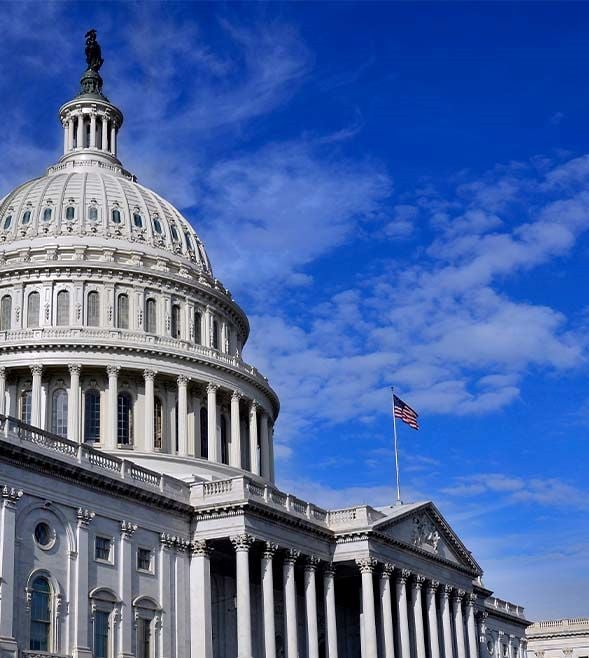-
Financial reporting and accounting advisory services
You trust your external auditor to deliver not only a high-quality, independent audit of your financial statements but to provide a range of support, including assessing material risks, evaluating internal controls and raising awareness around new and amended accounting standards.
-
Accounting Standards for Private Enterprises
Get the clear financial picture you need with the accounting standards team at Doane Grant Thornton LLP. Our experts have extensive experience with private enterprises of all sizes in all industries, an in-depth knowledge of today’s accounting standards, and are directly involved in the standard-setting process.
-
International Financial Reporting Standards
Whether you are already using IFRS or considering a transition to this global framework, Doane Grant Thornton LLP’s accounting standards team is here to help.
-
Accounting Standards for Not-for-Profit Organizations
From small, community organizations to large, national charities, you can count on Doane Grant Thornton LLP’s accounting standards team for in-depth knowledge and trusted advice.
-
Public Sector Accounting Standards
Working for a public-sector organization comes with a unique set of requirements for accounting and financial reporting. Doane Grant Thornton LLP’s accounting standards team has the practical, public-sector experience and in-depth knowledge you need.
-
Tax planning and compliance
Whether you are a private or public organization, your goal is to manage the critical aspects of tax compliance, and achieve the most effective results. At Doane Grant Thornton, we focus on delivering relevant advice, and providing an integrated planning approach to help you fulfill compliance obligations.
-
Research and development and government incentives
Are you developing innovative processes or products, undertaking experimentation or solving technological problems? If so, you may qualify to claim SR&ED tax credits. This Canadian federal government initiative is designed to encourage and support innovation in Canada. Our R&D professionals are a highly-trained, diverse team of practitioners that are engineers, scientists and specialized accountants.
-
Indirect tax
Keeping track of changes and developments in GST/HST, Quebec sales tax and other provincial sales taxes across Canada, can be a full-time job. The consequences for failing to adequately manage your organization’s sales tax obligations can be significant - from assessments, to forgone recoveries and cash flow implications, to customer or reputational risk.
-
US corporate tax
The United States has a very complex and regulated tax environment, that may undergo significant changes. Cross-border tax issues could become even more challenging for Canadian businesses looking for growth and prosperity in the biggest economy in the world.
-
Cross-border personal tax
In an increasingly flexible world, moving across the border may be more viable for Canadians and Americans; however, relocating may also have complex tax implications.
-
International tax
While there is great opportunity for businesses looking to expand globally, organizations are under increasing tax scrutiny. Regardless of your company’s size and level of international involvement—whether you’re working abroad, investing, buying and selling, borrowing or manufacturing—doing business beyond Canada’s borders comes with its fair share of tax risks.
-
Succession & estate planning
Like many private business owners today, you’ve spent your career building and running your business successfully. Now you’re faced with deciding on a successor—a successor who may or may not want your direct involvement and share your vision.
-
Tax Reporting & Advisory
The financial and tax reporting obligations of public markets and global tax authorities take significant resources and investment to manage. This requires calculating global tax provision estimates under US GAAP, IFRS, and other frameworks, and reconciling this reporting with tax compliance obligations.
-
Transfer pricing
Recognized as a leader in the transfer pricing community, our award-winning team can help you expand your business beyond borders with confidence.

-
Transactions
Our transactions group takes a client-centric, integrated approach, focused on helping you make and implement the best financial strategies. We offer meaningful, actionable and holistic advice to allow you to create value, manage risks and seize opportunities. It’s what we do best: help great organizations like yours grow and thrive.
-
Restructuring
We bring a wide range of services to both individuals and businesses – including shareholders, executives, directors, lenders, creditors and other advisors who are dealing with a corporation experiencing financial challenges.
-
Forensics
Market-driven expertise in investigation, dispute resolution and digital forensics
-
Cybersecurity
Viruses. Phishing. Malware infections. Malpractice by employees. Espionage. Data ransom and theft. Fraud. Cybercrime is now a leading risk to all businesses.
-
Consulting
Running a business is challenging and you need advice you can rely on at anytime you need it. Our team dives deep into your issues, looking holistically at your organization to understand your people, processes, and systems needs at the root of your pain points. The intersection of these three things is critical to develop the solutions you need today.
-
Creditor updates
Updates for creditors, limited partners, investors and shareholders.

-
Governance, risk and compliance
Effective, risk management—including governance and regulatory compliance—can lead to tangible, long-term business improvements. And be a source of significant competitive advantage.
-
Internal audit
Organizations thrive when they are constantly innovating, improving or creating new services and products and envisioning new markets and growth opportunities.
-
Certification – SOX
The corporate governance landscape is challenging at the best of times for public companies and their subsidiaries in Canada, the United States and around the world.
-
Third party assurance
Naturally, clients and stakeholders want reassurance that there are appropriate controls and safeguards over the data and processes being used to service their business. It’s critical.
-
 Assurance Important changes coming to AgriInvest in 2025AgriInvest is a business risk management program that helps agricultural producers manage small income declines and improve market income.
Assurance Important changes coming to AgriInvest in 2025AgriInvest is a business risk management program that helps agricultural producers manage small income declines and improve market income. -
 Tax alert Agricultural Clean Technology ProgramThe Agricultural Clean Technology Program will provide financial assistance to farmers and agri-businesses to help them reduce greenhouse gas (GHG) emissions.
Tax alert Agricultural Clean Technology ProgramThe Agricultural Clean Technology Program will provide financial assistance to farmers and agri-businesses to help them reduce greenhouse gas (GHG) emissions. -
 Tax alert ACT Program – Research and Innovation Stream explainedThe ACT Research and Innovation Stream provides financial support to organizations engaged in pre-market innovation.
Tax alert ACT Program – Research and Innovation Stream explainedThe ACT Research and Innovation Stream provides financial support to organizations engaged in pre-market innovation. -
 Tax alert ACT Program – Adoption Stream explainedThe ACT Adoption Stream provides non-repayable funding to help farmers and agri-business with the purchase and installation of clean technologies.
Tax alert ACT Program – Adoption Stream explainedThe ACT Adoption Stream provides non-repayable funding to help farmers and agri-business with the purchase and installation of clean technologies.
-
Builders And Developers
Every real estate project starts with a vision. We help builders and developers solidify that vision, transform it into reality, and create value.
-
Rental Property Owners And Occupiers
In today’s economic climate, it’s more important than ever to have a strong advisory partner on your side.
-
Real Estate Service Providers
Your company plays a key role in the success of landlords, investors and owners, but who is doing the same for you?

-
Mining
There’s no business quite like mining. It’s volatile, risky and complex – but the potential pay-off is huge. You’re not afraid of a challenge: the key is finding the right balance between risk and reward. Whether you’re a junior prospector, a senior producer, or somewhere in between, we’ll work with you to explore, discover and extract value at every stage of the mining process.
-
Oil & gas
The oil and gas industry is facing many complex challenges, beyond the price of oil. These include environmental issues, access to markets, growing competition from alternative energy sources and international markets, and a rapidly changing regulatory landscape, to name but a few.

Visit our hub to stay up to date on evolving US tax policies and their impact on Canadian business.
Updated: October 27, 2025
To uphold its commitment to Canada's auto sector, the federal government is slashing import quotas for General Motors and Stellantis—two automakers accused of reneging on their production promises in Canada.
Finance Minister François-Philippe Champagne and Industry Minister Mélanie Joly announced the cuts, citing GM’s scale-back at its Oshawa and Ingersoll plants and Stellantis’ abrupt cancellation of plans for its Brampton facility. These actions, the ministers said, violate the companies’ contractual obligations under Canada’s auto tariff remission framework introduced in April 2025.
That framework allows automakers to import a limited number of US-made vehicles tariff-free—on the condition that they maintain agreed-upon production levels in Canada. With GM and Stellantis falling short, Ottawa is reducing GM’s quota by 24.2% and Stellantis’ by a striking 50%.
Get in touch with a Doane Grant Thornton advisor today.
Updated: October 25, 2025
US President Donald Trump announced a 10% increase in tariffs on Canadian goods, escalating tensions in the Canada–US trade relationship. The move was triggered by an anti-tariff advertisement aired by the Province of Ontario. There has been no formal implementation details—making it more of a political signal than a policy at this stage.
Updated: October 17, 2025
The Canada Border Services Agency (CBSA) has updated Customs Notice 25-05 regarding the China Surtax Remission Order (2024), refining how Canadian importers can claim relief from surtaxes on certain Chinese goods. These changes are aimed at improving clarity, compliance, and accessibility for businesses.
Expanded product eligibility
- More goods have been added to the remission schedules, including new company-specific items.
- Corrections have been made to tariff item codes to ensure accuracy.
Clearer conditions for remission
- Goods must be imported between October 22, 2024, and December 31, 2025.
- They must not be subject to trade remedy measures under Canadian law.
- Importers have two years from the date of import to submit a remission claim.
- Goods must not be re-exported to the US in the same condition.
Updated: October 2, 2025
US President Donald Trump announced new tariffs on imported wood and furniture products, citing national security concerns. Beginning October 14, timber and lumber will face a 10% duty, while kitchen cabinets, vanities, and upholstered furniture will be taxed at 25%. These rates will rise in 2026 for countries that don’t reach trade deals with the US.
The move, made under Section 232 of the Trade Act, excludes exemptions under CUSMA/USMCA. The Canadian federal government has pledged $1.2 billion to support its lumber industry in response.
Recent announcements
Click here to read our previous announcements.
Provincial response
How do tariffs work?
A tariff, which is a tax imposed by a country on imported or exported goods, is generally collected and enforced by a country’s customs authority or agency. For example, in Canada, the Canada Border Services Agency (CBSA) administers duties and taxes on imported goods, including tariffs. Tariffs are generally imposed in addition to any customs duties that apply to a specific product. Then, GST and provincial taxes also apply (but can later be recovered in some cases).
Who pays tariffs?
As tariffs are in fact, duties, the importer of record is generally responsible for paying any duties/tariffs that are applied. The importer of record could be the buyer or the seller (or some other person). The cost of tariffs is generally ultimately passed on to the final user or consumer.
What US imports are subject to new tariffs?
On March 4, 2025, the federal government announced it will move forward with a 25% tariff on $155 billion in goods imported from the United States. Tariffs will apply immediately to a list of goods worth $30 billion. These initial tariffs affect a variety of goods, including orange juice, peanut butter, wine, spirits, beer, coffee, appliances, apparel, footwear, motorcycles, cosmetics, and certain pulp and paper products.
The government also announced it will impose additional countermeasures on $125 billion in imports from the United States, drawing from a list of goods open for a 21-day comment period. The list includes products such as electric vehicles, fruits and vegetables, beef, pork, dairy, electronics, steel, aluminum, trucks, and buses.
Federal relief for businesses
The federal government is also proposing measures to ease the effects of the countermeasures on Canadians by launching a process to allow businesses to request exceptional relief from the tariffs. This “remission process” will allow Canadian businesses to request relief from the payment of tariffs or a refund of tariffs already paid. The federal government said it will consider requests for remission of tariffs that apply beginning on March 4, 2025 to address:
- Situations where goods used as inputs can’t be sourced domestically (on a national or regional basis) or reasonably from non-US sources.
- Other exceptional circumstances that could have severe adverse impacts on the Canadian economy (on a case-by-case basis).
If the federal government decides to impose further tariffs, it notes that the remission process will also be available for those goods.
Impact to Canadian businesses and the economy
The imposition of these tariffs is expected to have significant repercussions for Canadian (and American) businesses, and the broader economy. If Canadian businesses act as the importer of record, they will face higher operational costs, which can squeeze profit margins, reduce cash flow, and limit their ability to reinvest in growth. If increased costs are passed on to Canadians, it may contribute to inflation.
On the other hand, if US purchasers act as the importer of record, higher prices could reduce demand for Canadian goods, leading to a decline in exports. This is particularly concerning for vulnerable industries like manufacturing, energy, forestry, and aerospace which rely heavily on US markets. Analysts from the Bank of Canada warn that a drop in exports could weaken Canada’s GDP, slow economic growth, and increase unemployment.
Overall, these tariffs create financial uncertainty for Canadian companies, disrupt trade relationships, and put downward pressure on economic growth. Without effective countermeasures or alternative markets, Canada risks slower economic expansion and potential long-term challenges for key industries.
How we can help you
We can help implement strategies to prepare for escalating trade tensions and help businesses understand how these changes affect them, including providing guidance on:
- Customs impact: There are different approaches to managing tariff costs and complying with these changing import/export regulations. We can assist with making requests for remission relief from Canadian tariffs. We can help businesses understand how existing trade agreements, such as the United States–Mexico–Canada Agreement, affect their transactions, as well as help them optimize their transactions for the most cost-effective outcome. For example, we can advise businesses on implementing stronger inventory practices, leveraging available programs to reduce duties, and ensuring goods are categorized and their origins documented correctly.
- Transfer pricing: Adjustments can be made to intercompany pricing policies to mitigate risks related to cross-border transactions. It’s important to note that even if your transfer pricing can be lowered, the customs value could be different.
- Supply chain management: An evaluation of a business’ broader supply chain and operational impacts can help to identify whether opportunities exist to reduce costs.
- Income tax considerations: Identifying implications for tax planning can be complex. This includes potential effects on deductions and credits.
- Navigate the remission process: Our experienced professionals can guide you through the federal government’s remission process with expertise and ease.
We’re closely monitoring policy changes and can help you navigate the regulations to find ways to alleviate the effects of tariffs and maintaining cash flow, while staying compliant. Reach out to your advisor for more details on how these tariffs could impact your business.
Previous announcements
Get the latest information in your inbox.
Subscribe to receive relevant and timely information and event invitations.








